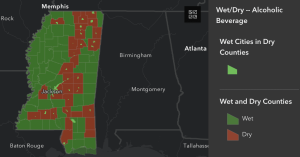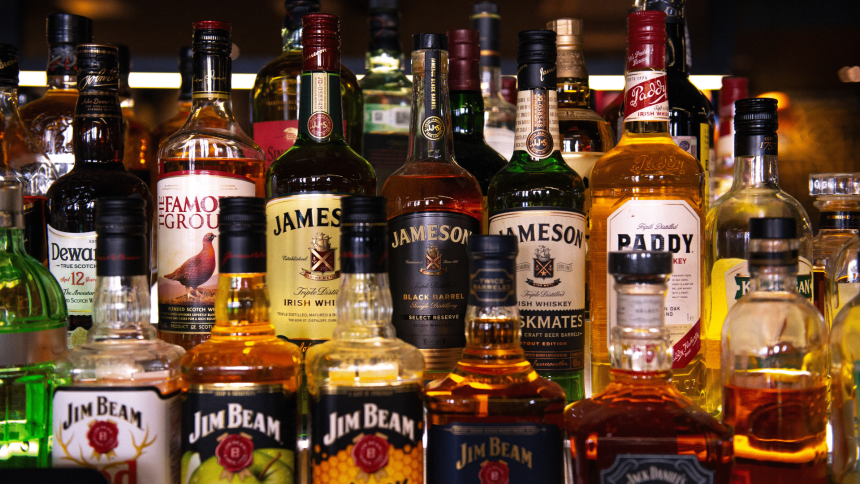Cheers! Lawmakers in the Mississippi House of Representatives have passed legislation that would allow more small towns across the state to sell wine and liquor.
Of course, it is legal for those 21 and older to possess and drink alcohol statewide. However, Mississippi has served as a historic example of jumbled carryover from the prohibition days, in which counties were subsequently given the option to sell hard liquor or not – thus choosing to become “wet” or “dry.”

House Bill 777, which was overwhelmingly approved through a 93-21 vote, would automatically legalize the sale and manufacture of wine and liquor in municipalities with 5,000 or fewer residents inside a dry county.
Republican Rep. Hank Zuber of Ocean Springs, who led the charge inside the capitol on Tuesday, argued that the legislation is intended to help even out the state’s perplexing set of alcohol laws. He also said HB 777 will help bring further tourism to smaller towns, citing those places’ current inability to have events that include liquor and wine.
“Over the years, many of you have come to [us] and said when are we going to bring some common sense to our alcohol public policy and laws? When are we going to bring Mississippi into the 21st century? Well, now is the time,” Zuber said.

“If you think about it, we are having a resurgence in this state in tourism in our smaller counties… This will allow restaurants in those smaller towns with a population less than 5,000 people to go through the permitting process to be able to have on-site premise sale of alcohol and wine. In those smaller cities, this would allow these cities to get the permit for a special event that sells wine and alcohol. This will allow our smaller cities – just like our medium and larger cities – to have tasting events. This is something that is going to move Mississippi forward and help out smaller cities without question in terms of tourism.”
The bill would not change the status of Mississippi’s 31 dry counties. Instead, it would add more municipalities to the list of places where hard liquor and wine can be sold. Current law allows larger municipalities within dry counties to sell hard alcohol if implemented through a local election. For example, the state’s premier college towns of Oxford and Starkville sit in dry counties but sell liquor and wine. Smaller towns have not been given that opportunity, Zuber argued.
If the Senate passes the measure and Gov. Tate Reeves signs it into law, all municipalities with less than 5,000 residents inside dry counties will become wet effective Jan. 1, 2025. Local leaders will have a chance to conduct a referendum to become dry again, needing 1,500 signatures or 20 percent of citizens to trigger an election on the matter.
Mississippi became the final state in 1966 to lift Prohibition-era laws. It wasn’t until 2021 that leaders officially repealed its law on drinking, allowing the possession of alcohol in every county and beginning the process of treating the alcohol industry like other members of its market economy.
J.T. Mitchell contributed to this report.







